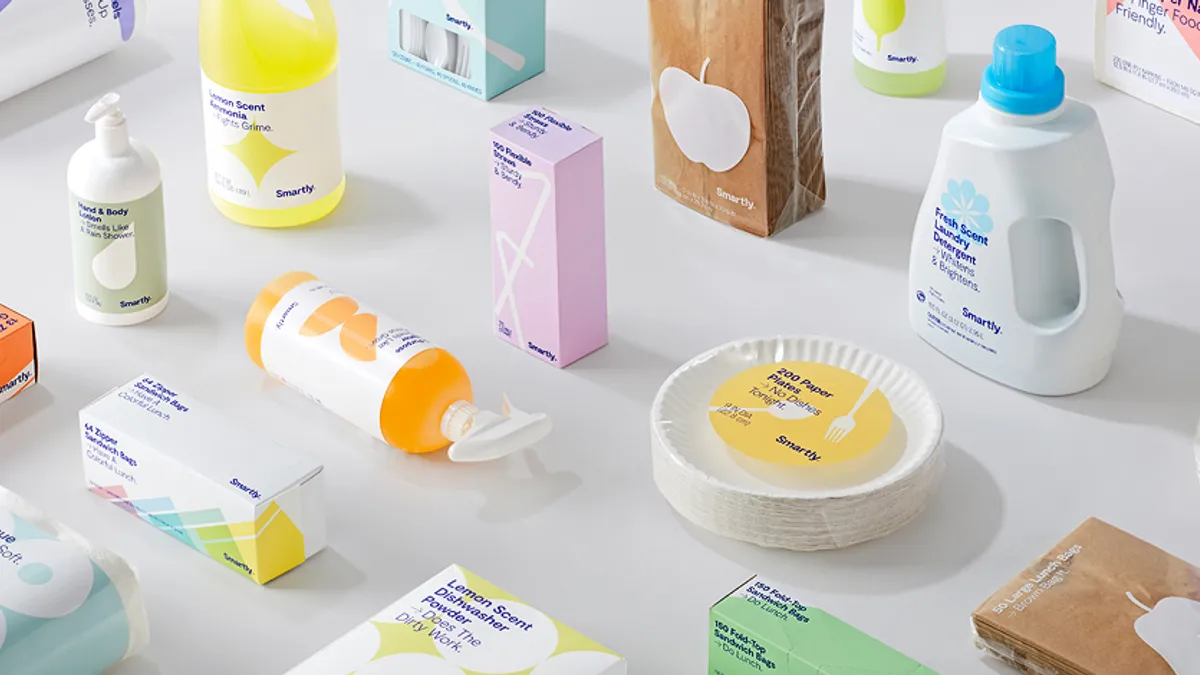Dive Brief:
-
The volume of private labels being sold at mass retailers, club stores and dollar stores rose 33.2% over the past five years, while national brands rose less than 1%, according to a study from the Private Label Manufacturers Association using data from Nielsen. Dollar sales of private labels rose 41% over the same period, compared to 7.4% for national brands.
-
Market share has adjusted accordingly: Private labels' unit market share reached 23.2% in 2018, up from 18.5% in 2013, while dollar market share rose to 19.3% in 2018 from 15.5% in 2013, according to the report.
-
In 2018, private label brand sales across the outlets measured by Nielsen rose to $128.6 billion from $123.1 billion five years ago, while unit volume rose to 46.2 billion from 44.8 billion.
Dive Insight:
Shoppers are encountering more private labels in most product categories as retailers have worked to differentiate their offering, so it stands to reason they would buy more.
Younger consumers are especially open to un-branded goods: 51% of millennials say they have no preference between national or store brands and half also say they'd buy even more private labels if there were more to choose from, according to Gartner L2's Amazon Intelligence: Private Label report.
Amazon and Target are the two retailers that seem most intent on providing customers with in-house brands in several categories, with assortments in baby care, household essentials and apparel, among others. Target launched its latest, a line of clean household essentials, on Monday. But it's a broad trend across the industry, with off-pricers, department stores and specialty retailers all debuting new in-house brands. Bed Bath & Beyond recently said that private labels are going to be key to its turnaround, Dollar General is reportedly launching a private label beauty line, and Walmart is adding electronics and furniture to its own stable.
That should have national brands worried, although established brands that enjoy high levels of trust are difficult to unseat. Even Amazon is encountering resistance from its Prime members when it comes to healthcare, and pet food and supplies, "where quality and loyalty concerns drive most purchases," according to Gartner L2. Consumer product behemoth Procter & Gamble on Tuesday beat estimates when it reported third quarter net sales increased, with particular success in beauty, healthcare, fabric and home care, and baby, feminine and family care, according to a company press release.
Still, offering in-house brands has become an imperative, according to Lee Peterson, executive vice president of brand strategy and design at WD Partners.
"Target is probably the best example of somebody that's working it now," he said in an interview with Retail Dive. "The reason is really simple — you can go online and buy commodity stuff and you don't have a prayer. You've got to develop your brand. Or fail."















